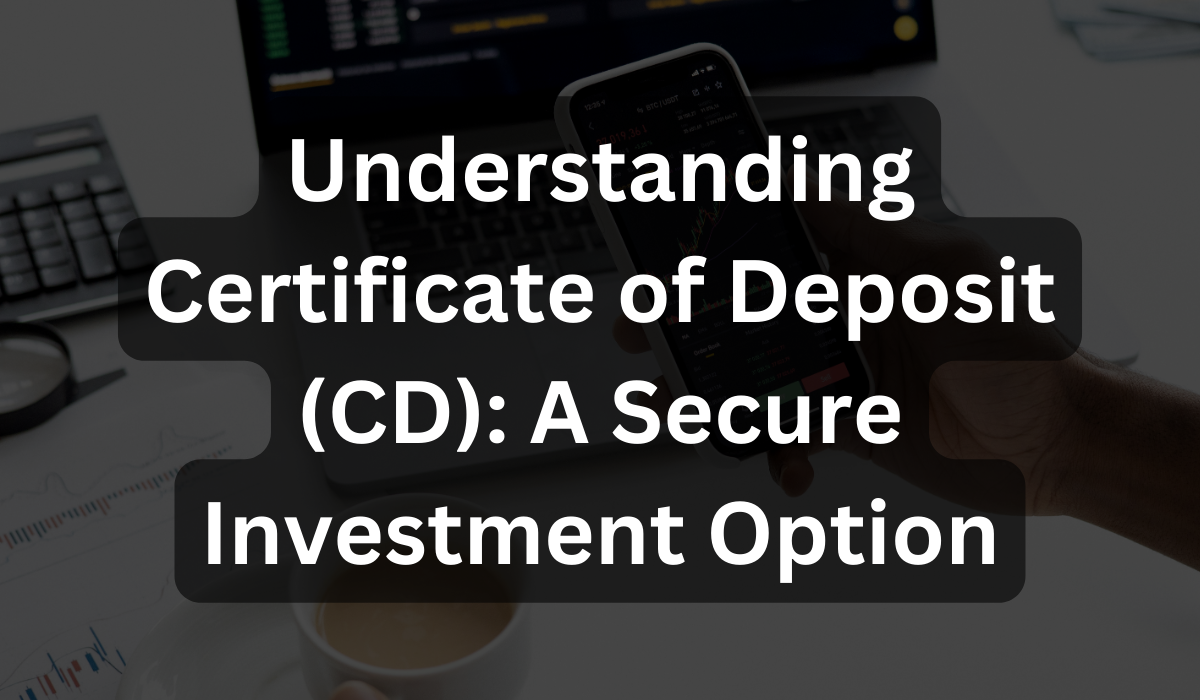When it comes to investing, it’s essential to explore various options that offer both security and potential returns. In this blog post, we will delve into the concept of a Certificate of Deposit (CD) and understand how it can be a valuable addition to your investment portfolio.
Demystifying Certificate of Deposit (CD)
A Certificate of Deposit, commonly known as a CD, is a negotiable certificate issued by a commercial bank to individuals as evidence of a deposit. It serves as a secure investment instrument, offering a fixed interest rate and a specified maturity date.
CDs come in different sizes, with maturities ranging from a few weeks to several years. When you purchase a CD, you agree to keep the funds deposited for the agreed-upon period. In return, the issuing bank guarantees the principal amount along with the interest earned upon maturity.
The Benefits of Investing in a Certificate of Deposit
Investing in a CD offers several advantages:
- Security: CDs are considered low-risk investments as they are typically issued by reputable banks. The guarantee of the principal amount, along with the fixed interest rate, provides investors with peace of mind.
- Stability: Unlike other investment options, the interest rate on a CD remains fixed throughout the investment period. This stability ensures predictable returns, making it an attractive choice for risk-averse investors.
- Flexibility: While CDs are intended to be held until maturity, they can be sold on the secondary market if the need arises. However, early redemption may result in a penalty.
- Diversification: CDs offer an opportunity to diversify your investment portfolio. By allocating a portion of your funds to CDs, you can balance risk and potentially enhance overall returns.
- Regular Income: If you opt for a CD with periodic interest payments, you can enjoy a steady income stream. This feature is particularly beneficial for individuals seeking regular income during retirement or other specific financial goals.
Making Informed Decisions with Certificate of Deposit
Before investing in a CD, it’s crucial to consider a few key factors:
- Maturity Period: Evaluate your financial goals and choose a CD with a maturity period that aligns with your investment timeline.
- Interest Rate: Compare interest rates offered by different banks to ensure you’re getting a competitive rate of return.
- Penalties: Understand the penalties associated with early withdrawal or redemption before the maturity date.
- FDIC Insurance: Confirm that the issuing bank is a member of the Federal Deposit Insurance Corporation (FDIC). This ensures your investment is protected up to the applicable limit.
Final Thoughts
A Certificate of Deposit (CD) is an attractive investment option for individuals seeking stability and security. By understanding how CDs work and considering their benefits and associated factors, you can make informed decisions that align with your financial goals. Whether you’re looking for a fixed income source or diversifying your investment portfolio, a CD can be an excellent addition to your overall investment strategy.








